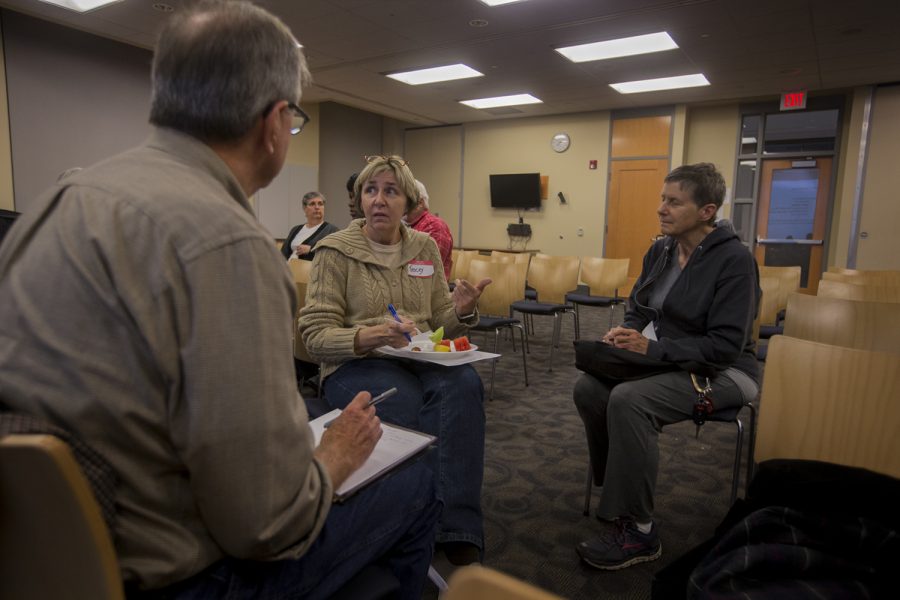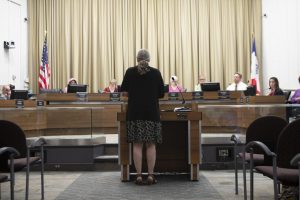Human Rights commission addresses affordable housing, education equity
The Human Rights Commission met on Tuesday to discuss affordable housing in the city and recent survey results concerning equity in secondary schools.
Attendees participate in a group activity during an Iowa City Human Rights Commission event in the Iowa City Public Library on Thursday, October 13, 2016. The event was broken up into two sections, the first focusing on how to engage individuals, and the second on survey result findings from the Iowa City school district.
September 18, 2018
The Iowa City Human Rights Commission met Tuesday evening to discuss various issues and upcoming events, most notably recent housing complaints made by people about the city and education equity in the Iowa City school system.
According to the Human Rights Commission housing subcommittee, there have been 3,000 housing complaints across the state, including several concerns about discrimination.
“When the Housing Commission receives those kinds of calls, they send them to us at Human Rights,” Human Rights Commission member Barbara Kutzko said. “The majority of complaints stem from employment, public accommodation, education, and credit concerns.”
Kutzko said the more people interact with others, the more complaints the rights panel is likely to see. The latter are only relevant to the commission if consistency in discrimination by instigators, such as landlords, can be proven.
RELATED: Iowa City City Council approves Pentacrest Garden rezoning
The City Council scatters affordable-housing options around the city to make room for workers in its borders, a method commonly used to avoid concentration of poverty, commission member Cathy McGinnis said.
“The City Council plan sounds good,” commission member Joe Coulter said. “But it creates a divide among ethnic groups, so they can’t live in proximity. Homogenizing everyone tells them to abandon their culture.”
Commission and housing subcommittee member Jeff Falk said people in service occupations need to have affordable living options in the city. He referenced a UI study that shows housing affects physical health and provides steps people can take to improve the city’s residential environment.
In addition, the Rights Commission education subcommittee highlighted a recent survey drawn from students of the School District that discussed disciplinary equity.
“This 2018 survey report was very informative about student perception,” Rights Commission Chair Eliza Jane Willis said. “Inequity in these schools is a reality, and discipline is administered disproportionately, according to the students surveyed.”
The survey in question concluded that 26 percent of hurtful comments about race, 25 percent about sexual orientation, and 22 percent about gender came from teachers.
“These statistics are not fact,” Willis said. “It’s what we have from students, and in the future, we would like to go to schools and facilitate conversation with them to talk about this issue as a community.”
Although the Rights Commission members said they would be interested in implementing a mediation service for community circles and non-bias trainings for teachers, they do not have the authority to make such events mandatory.
“Since we’ve started looking at these numbers, we’ve already seen changes,” Falk said. “I think there are questions about how to use this data.”






